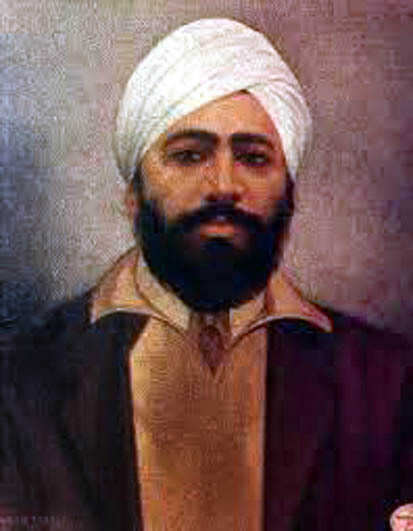Udham Singh’s Shaheedi Diwas to be observed tomorrow in Ajnala
Aakanksha N Bhardwaj
Tribune News Service
Jalandhar, July 30
Members of the Desh Bhagat Yadgar Hall Committee will be observing the Shaheedi Diwas of Shaheed Udham Singh on August 1 in Ajnala, Amritsar. The members will also remember martyrs of the 1857 revolt, whose mortal remains were exhumed from a well in Ajnala.
Amolak Singh, convener of the committee, said the function was scheduled to be held in Ajnala to mark the two events. Every year, the committee members celebrate and commemorate every event related to the great freedom fighters of the country with full respects.
Udham Singh was born on December 12, 1899, at Sunam in Punjab. To avenge the Jallianwala Bagh massacre, he went to England, shot and killed Michael O’Dwyer, former Governor of Punjab. Udham Singh was hanged in Penton Ville Jail, London, on July 31, 1940.
A copy of ‘Heer’, written by Sufi poet Waris Shah, that was owned by the martyr himself is displayed here at the Yadgar Hall. The pages also have the signature of Shaheed Udham Singh.
‘Sewa desh di jindariye badi aukhi, gallan karniya dher sukhaliya ne,’ the lyrics of the song that was sung by Shaheed Kartar Singh Sarabha, a Ghadar revolutionary, are written on a board along with a picture of the first printing press that Sarabha used to print ‘Ghadar’ newspaper and other articles related to the Ghadar Movement at the Desh Bhagat Yadgar Hall.
Both Shaheed Kartar Singh Sarabha and the song had a great impact on Udham Singh’s life and he always considered Sarabha as his ideal.
Talking about ‘Heer’, committee members said the book that was owned by Udham Singh was in the possession of England-based Babu Karam Singh Cheema, a founder-member of the Indian Workers’ Association (IWA) in the UK. He was given a copy by Udham Singh.
After the death of Cheema, his son Sohan Cheema handed over the copy to the committee. The book also had a great influence on Udham Singh’s life.
The members believe that though people come to see the valuable and precious belonging of Udham Singh, it has only remained limited to historians as the new generation does not pay much heed to such things.









